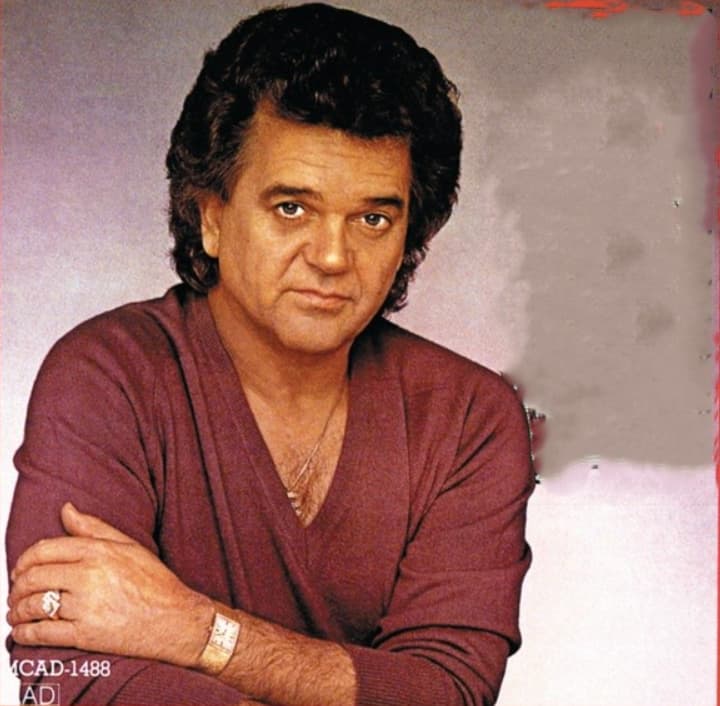
A married woman’s silent, unvoiced desire for a deeper, warmer love, recognized by a man who understands the ache of forbidden longing.
Ah, to listen to Conway Twitty’s 1974 masterpiece, “I See The Want To In Your Eyes,” is to step back into an era when a country song could plumb the depths of human emotion with little more than a plaintive steel guitar and a gravelly voice full of knowing sympathy. It’s a song that speaks to the shared secrets, the quiet, almost invisible conflicts of the heart that so many of us, especially those of a certain age, remember grappling with—or witnessing—in those years. It was released in July 1974 as the second single from his album, I’m Not Through Loving You Yet, and it became yet another jewel in Twitty’s already sparkling crown, climbing to the coveted Number One spot on the Billboard Hot Country Songs chart. It wasn’t just a fleeting success; the single held its top position for two weeks and lingered on the charts for a solid thirteen, cementing its place as Twitty’s 11th country chart-topper.
The genius of this song, penned by the immensely talented Wayne Carson (who also gave us “The Letter” and “Always on My Mind”), lies not just in its musicality but in its profound, yet simple, honesty. It’s a song about recognition and temptation, a delicate dance played out not through grand gestures, but through a look—a glimpse of something raw and yearning in another person’s eyes. The narrative is taut and intimate: the male narrator observes a woman, noting the “sparklin’ little diamond on your hand” and the plain truth that she is spoken for. Yet, the real story is in her gaze. He sees past the veneer of her marriage and into a deep, “quiet, soft desire,” comparing it poignantly to “the embers of a once raging fire.” This is where the emotional core of the song resides: the acknowledgement that even within a committed relationship, a deep, warm love can grow cold, and a desire for more can flicker to life. It’s the kind of complex, adult theme that Twitty specialized in, earning him a passionate, devoted female fanbase who felt he was truly singing to them, about their secret heartbreaks and silent schemes.
It’s a testament to the song’s quality that Twitty—the “High Priest of Country Music”—heard Gary Stewart’s version (which appeared on his 1975 album Out of Hand) on the radio and felt compelled to record his own take. Twitty’s interpretation, however, with his signature blend of soft, intimate vocal delivery and that famous, breathy growl, elevated the song into a country standard. The production, guided by the legendary Owen Bradley, keeps the focus squarely on Twitty‘s voice and the heartbreaking lyrics. It’s an introduction to a moment of moral reckoning, where the narrator understands the risk—”You know I could light that fire again, you know it isn’t wise”—but ultimately leaves the choice with the woman, sympathizing with her plight but observing the undeniable truth in her eyes. It forces the listener to ponder that age-old question, “How strong’s a band of gold?” when a woman’s soul yearns for a love that’s “sweet and warm.” For anyone who lived through the tumultuous emotional landscape of the 1970s, this song is a potent echo of unspoken desires and the difficult choices that come with them.